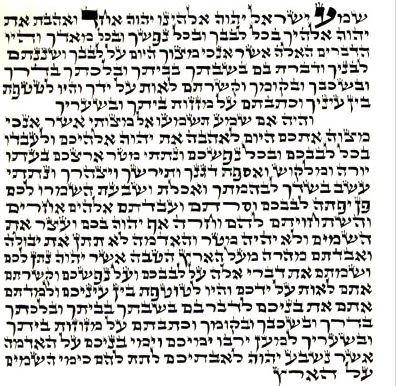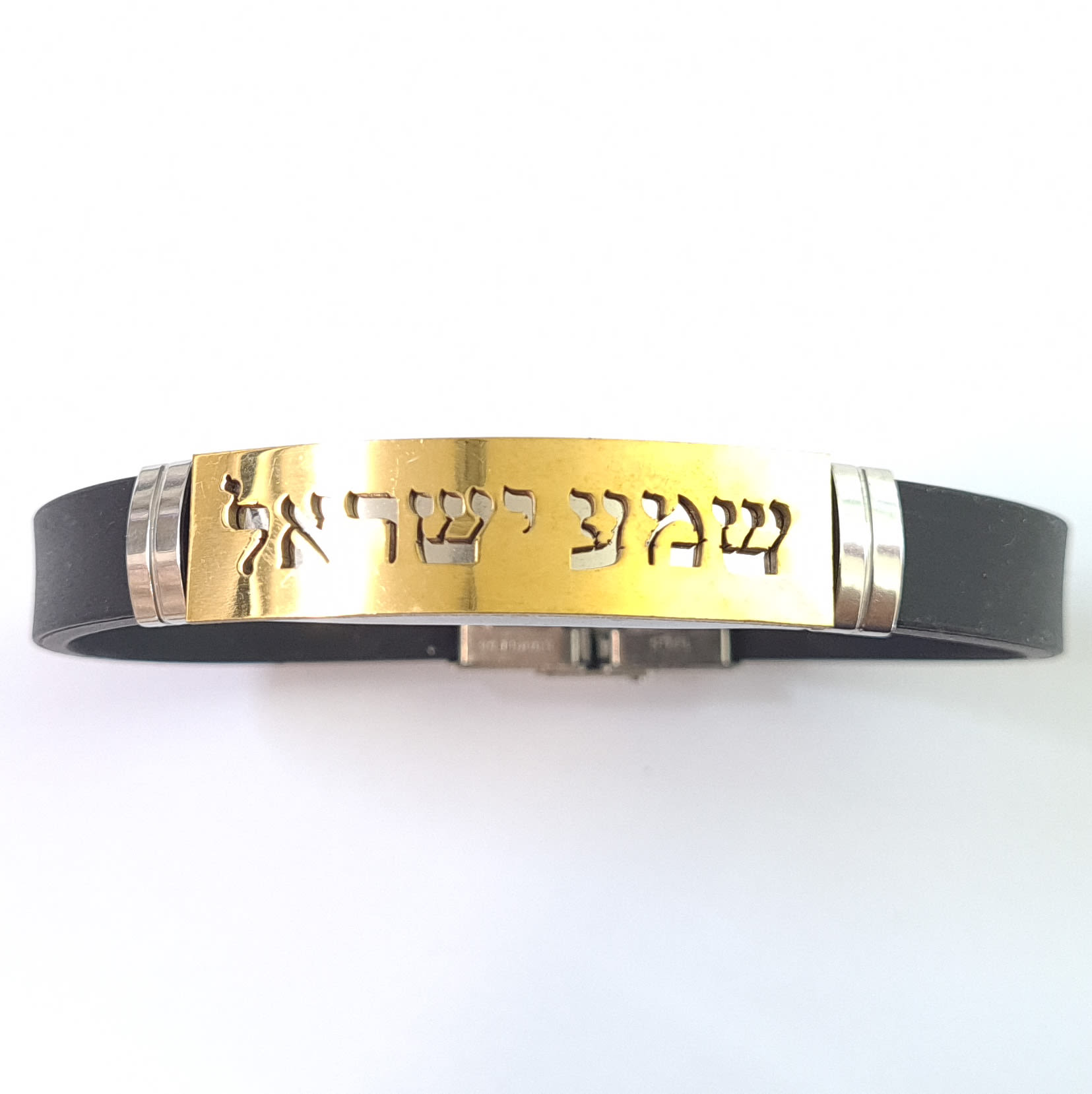
Within The Suffering
This is how God’s mysterious hand works. Sometimes a person feels that he is about to drown in a sea of problems. It doesn’t occur to him...

When Pharaoh’s astrologers told him that the redeemer of Israel was soon to be born, he issued a decree that every male, Hebrew child to be born should be thrown into the Nile. This decree lasted some eighty-three years (Pirkei d’Rabbi Eliezer, chapter 48). Hundreds of thousands of Jewish children were killed. Finally the astrologers told Pharaoh, “Today the redeemer of Israel has been born. However we do not know if he is the son of an Egyptian or of a Hebrew.” Therefore, Pharaoh commanded that even the children of his own nation be drowned, for perhaps the redeemer was one of them. Thus the verse states: “And Pharaoh commanded all his people, saying, every son that is born you shall cast into the river” (Shemot 1:22, see Rashi on this verse).
Despite all this, providence decreed that Moshe (Moses) grow up in Pharaoh’s very house, on his very lap! The Midrash relates that Batya, Pharaoh’s beloved daughter, was afflicted with leprosy, a disease for which there was no known remedy. But the minute she lifted baby Moshe out of the Nile, she was cured (Pirkei d’Rabbi Eliezer, ibid). Pharaoh was afraid that if he killed Moshe, his daughter’s leprosy would return. Since there was nothing the king wouldn’t do for her recovery, he took Moshe and raised him in his own home. Instead of Moshe fearing Pharaoh, Pharaoh was afraid of Moshe. God hid Moshe precisely in the lap of his greatest enemy, who had slaughtered hundreds of thousand of children on his account, even his own people!
This is how God’s mysterious hand works. Sometimes a person feels that he is about to drown in a sea of problems. It doesn’t occur to him that God can send him deliverance in the midst of his troubles. “Within the suffering, show us deliverance and relief,” we plead. (Slichot prayers) From the heart of the suffering itself, the deliverance will sprout forth. As Rebbe Nachman said, “There are times when God turns everything around for the good” (Likutey Eitzot: Encouragement 36) [Editor Note: in English Advice].
Encouragement vs. Admonition
On the surface, encouragement and admonition seem to be opposites. Admonition is a direct command that we must take account of our lives. It tells us that we are not acting properly; that we must change our ways and return to God. In contrast, encouragement inspires a person, assuring him that he still has hope and that he must not give up his efforts. Even if he has sinned, he can still come close to God, for God desires his repentance and loves him like a father loves an only son.
The truth is, encouragement itself is the greatest form of admonition. Encouragement doesn’t mean patting oneself on the back, as if to say, “Things are no so bad. Everything is fine. Continue as before,” without feeling the need to improve oneself. It doesn’t mean covering up one’s sins, or imply that a person can simply follow the whims of his heart and desires. Absolutely not! The whole point of encouragement is to reveal the potential in every Jew to subdue the evil inclination and to come closer to God.
Revealing the Inner Good
There is a portion of God in every single Jew; a deep desire to be close to his Maker. But one must deal with the “leaven in the dough” (A term for the evil inclination. Brochot 17a); the downswings and despair that can attack a person daily. The same evil inclination that first entices a person to sin later tortures that person with depression because of the act he committed. It causes him to lose hope and pushes him away from holiness, until he feels that he will never be able to return.
But when a person receives a bit of encouragement, no matter how low he may be, if he hears that all hope is not lost, and that God sits and waits for him to return, then the goodness hidden in his heart is aroused, and the evil disappears. With this new-found strength, he can run with tremendous longing to God, like one of the greatest tzaddikim. Really, it was only the hopelessness that obscured his thoughts of returning to God.
This means that the best way to admonish a person is to reveal to him his hidden good. Only this will prevent him from sinning, and inspire him to return to God.
The Story of Rabbi Akiva
We find this lesson in the life of Rabbi Akiva. The Arizal writes that until Rabbi Akiva was forty years old, he had such evil buried in him that he could neither return to God, nor study Torah. It never occurred to him that he had the potential to become the great “Rabbi Akiva”. This holy potential was buried under a thick mantle of depression and despair that did not allow him to even dream of what he could achieve.
The Talmud relates that one day, while tending his flock, Rabbi Akiva came upon a stone that had been pierced through by drops of water from a spring. “If water can penetrate this stone,” he thought, “surely the Torah can penetrate my heart” (Avot d’Rabbi Nosson 6:2, Succah 52a. The evil inclination is called a stone, as the verse says, “I will remove from you your heart of stone: <Yechezkel 36:26>). Rabbi Akiva accepted upon himself the yoke of Torah, which is compared to water. Thus, he weakened the rock-like force of the evil inclination that had completely convinced him that all was lost.
It was not forceful, admonishing words that changed Rabbi Akiva’s life. It was the simple reassurance that hope was not lost. Each drop of Torah caused the goodness in him to shine brighter and brighter until the evil disappeared completely, just as the water eroded the stone.
Rabbi Akiva’s desire to return to God was incredibly powerful. For forty years a pure spirit burned within him, a Divine spark that demanded him to become great, but bitterness and negativity stood in the way. His enthusiasm could not overcome his despair. However, the very moment he realized what he could achieve, he overcame all the evil within him. With the passing of time, his awesome holiness was revealed. He was transformed and became the leader of his generation, of whom Moshe said to God, “If You have such a man as this, why are You giving the Torah through me?!” (Menochot 29b)
Revealing the Goodness
The Talmud tells an amazing story about how Rebbe Yehuda HaNasi brought Reb Yosi ben R. Eliezer back to the path of repentance (for he had fallen very far). What did Rebbe do? He ordained Reb Yosi and gave him the title “Rabbi”. This was meant to encourage him (Bava Metzia 85a). Rav Tzaddok HaKohen writes: “It was not a lie to call him Rabbi because, when Reb Yosi’s greatness was eventually revealed, it became obvious that it had existed there from the beginning, only it had been hidden. (Tzidkot HaTzaddik 113) (31)
Just a Little, and There Will Be No Wicked
Rebbe Nachman commented on the verse, “Just a little bit and the wicked will be gone” (Tehillim 37:10), that if we judge a person favorable, and find some little bit of good within him, we can arouse him to do teshuva. The good will outshine the evil. Then, “You will consider his place, and he will be no more” (ibid). That is, no more as he was, for he will have become and entirely different person, completely good (Likutey Moharan I:282).
The Spark that Became a Flame
I saw an amazing story about the great chassidic Master, Rav Avraham Yehoshua Heshel, the Apter Rebbe. In a Polish city not far from his own there lived a Jewish apostate. This Jew had become very powerful, and was actually one of the king’s advisors. However, in his heart he harbored a burning hatred towards his own people which led him to afflict the Jews of his own province mercilessly. If the king called an assembly of noblemen to discuss the welfare of his citizens, this Jew-hater would besmirch the Jews using every possible means.
It happened during one of these meetings that another of the noblemen, also a Jew-hater, began to slander the Jews. He described to the king how, in one of his cities, a gentile woman had mysteriously disappeared on her way to draw water. This happened on the eve of Pesach when the Jewish People were busy baking their matzos. After a thorough search, it was discovered that the Jews were responsible for the disappearance of the young woman. They had murdered her and used her blood in their matzos.
The king and his advisors were aghast. In their anger, they decided to issue and edict against all the Jews of the country. The document was prepared and passed around the table for the noblemen to sign. When it came the apostate’s turn to sign, he paused. For some mysterious reason a pure spirit entered into him and, instead of enthusiastically joining the rest, he stood up and declared that he too was a Jew, and that the entire accusation was absurd. Eating blood was one of the most despicable acts to the Jewish People. He knows this because he grew up among them and is familiar with their every custom.
The honesty of his words immediately placated the king and his advisors, especially since they had always known him to be a sworn enemy of the Jews. His words had a ring of truth to them, and so the edict was dropped completely.
After this incident, a holy fire began to burn in this apostate’s heart. The great mitzvah of saving countless Jewish lives ignited a hidden spark, and he began to yearn for his people, for God and for Torah. Yet repentance seemed impossible. He had long since abandoned his faith and was deeply entrenched in the gentile world. His breach seemed irreparable, and hope seemed lost. Nonetheless, he decided to travel to the Rabbi of Opte: perhaps he could help him find a way to return.
That same night, with a broken heart, the apostate arrived at the home of the Apter Rav. When the tzaddik saw this well known Jew-hater at his door, he became concerned. What new evil was this oppressor scheming? Seeking to avoid him, the Apter Rav claimed that he was too tired to receive anyone at that time of night. However, the apostate refused to leave and begged the Rav to let him speak. But the tzaddik had already made up his mind. He ordered his servant to remove the man. “When my walking-stick sprouts grass, I’ll listen to him!” he declared. At those very words, the walking stick besides his chair began to sprout grass! The tzaddik was amazed. He called the apostate back into his house and gave him permission to speak. With a broken heart, the man immediately related the entire chain of events, and announced that he wanted to repent and abandon his evil ways. He begged the Apter Rav to help him do teshuva.
The Apter Rav agreed to work on his spiritual rectification. The apostate was to remain in Apte. The Rebbe sent a message to the Rav of the Jew’s city, requesting that he keep them informed of any changes in the apostate’s house. Then he gave the apostate a path of repentance that he should start to observe immediately. Two weeks passed and the Rav of the city wrote to the Apter Rav informing him that the apostate’s house and all his belongings had been destroyed in a fire. Nothing of his previous life remained. The Apter Rav immediately informed him that his repentance was accepted and that he could now return to the Jewish community and build his life again.
We see that even an apostate, who had already sinned countless times, still had a pure Jewish soul. His one mitzvah aroused the unbreakable point and he remembered that no matter what, he was still a Jew, bound to God and Torah. One mitzvah led to another, until he abandoned his evil ways and returned to his people.
The Smell of His Garments – His “Traitors”
On the verse: “And he smelled the scent of his garments – B’GaDi (Bereishit 27:27), the Talmud comments: “He smelled the scent of his traitors – BoGDiM.” That is, even the sinners of Israel retain a good smell that enables them to return in teshuva (See Rashi on this verse, based on Sanhedrin 37a).
The Talmud tells the story of Yosi Mashisa. During the destruction of Jerusalem, the Romans sought to enter the Temple. “Let one of the Jewish traitors themselves enter,” they said, “and be the first to desecrate their sacred vessels.” They told Yosi Mashisa that, if he went in, he could keep whatever he found. He entered, and came out with the golden Menorah. “This is not for the likes of you,” the Romans told him, and took it away. “Go in again, and take whatever you want.” However, he refused to enter a second time. They promised him the taxes of the entire city for the next three years if he would reenter, but he still refused. “Isn’t it enough that I angered God once,” he said, “must I anger Him again?!” So the Romans tied him to a thick plank and sawed him through. “Oy! Oy! Oy!” he cried, “that I angered my God!” (Bereishit Rabbah 65:18).
How powerful is the inner spark of a Jew, that even a sinner like Yosi Mashisa, wicked enough to enter the Temple and remove the Menorah, did such complete repentance that he cried out with his last strength, “Oy, that I angered God!” About those like him it was said, “And he smelled the smell of his traitors.” How very wonderful and pleasant is that smell…
Sanctifying His Name
I heard this story in the name of the Chofetz Chaim (heard from Rabbi Ezriel Peterson, of Lithuania). It happened in one of the cities in Lithuania that the king issued a decree of forced conversion against the Jews. Everyone was required to hang a cross on the front-door of his home, and failure to do so was punishable by death. Among the citizens was a certain non-religious Jew, a pharmacist by profession, who had never shown any trace of Jewish identity. But when that edict was issued, his Jewish soul woke up and he decided not to obey. His gentile maidservant, who knew the punishment for not complying, begged him to fulfill the order of the king, but he refused to listen. She even offered to do it herself, just so he should live, but he would not permit it. He would rather die, he declared, than worship a false god. Eventually, he was caught and executed. This resulted in a tremendous sanctification of God’s Name in public. Everyone realized the preciousness of a Jewish soul, even when concealed in the depths of impurity.
The Power of a Jewish Soul
I heard this story from an old man, a God-fearing Jew from Germany named Tuvia Guttman. He loved mitzvot and always prayed with sunrise minyan. He told me a story that happened in Germany when he was young.
There was a certain Jew who was very estranged from Judaism. He was an extremely wealthy man, who had filled his extensive properties with gardens and orchards, and devoted his entire life to physical pleasure. One day, his wife gave birth to a son. However, despite the offers of the Jewish community to provide a mohel, he refused to have the child circumcised. He rejected this mitzvah which even the non-religious observe.
A short time later, his son died. But, because he was uncircumcised, the burial society refused to give him a plot in the Jewish cemetery, and the father was forced to bury him in one of his gardens. That same night, the child came to him in a dream and begged his father to have the circumcision performed. Every single night this dream would repeat itself, and every single day, whenever the father lay down to rest, his son would appear to him. Finally, he could bear it no longer. He went to the burial society and asked them to fulfill the wish of the departed. They opened the grave and circumcised the child according to law. From then on, the son stopped coming to him in his dreams, and his mind was at ease.
This father was an avowed sinner. And yet the Jewish spark hidden in him eventually revealed itself in his son. An amazing spiritual potential is buried within every Jew, even when he is far from his Father in Heaven.
(Used with permission from the author. From the book “In all my Ways” Keren Ohr Publications)










Tell us what you think!
Thank you for your comment!
It will be published after approval by the Editor.